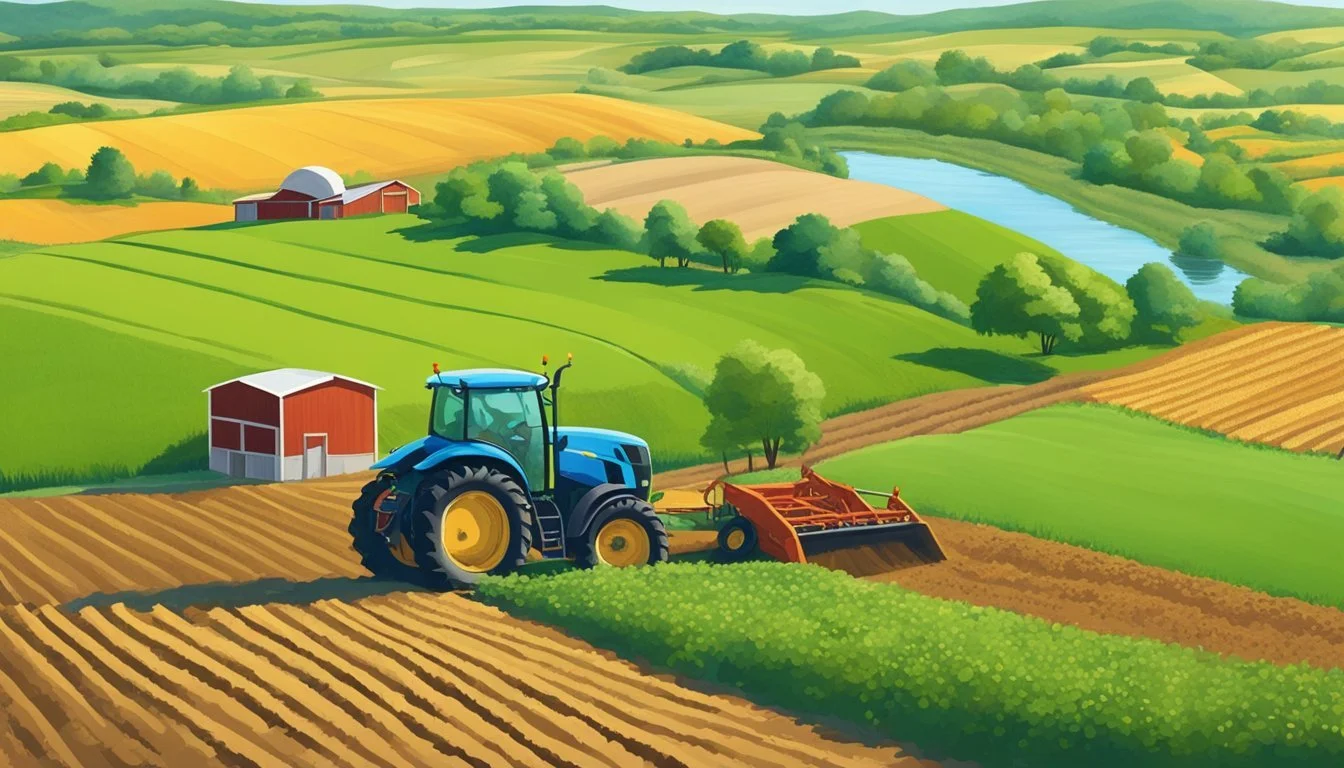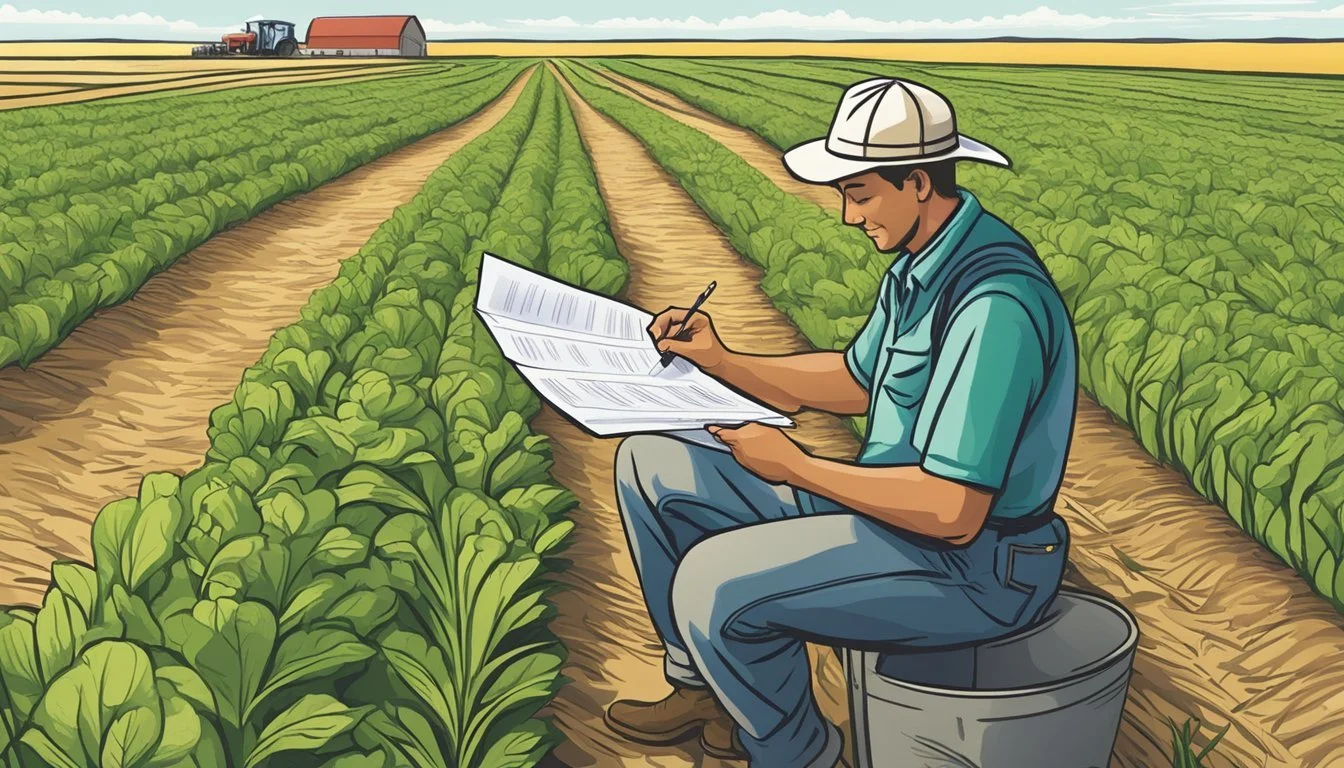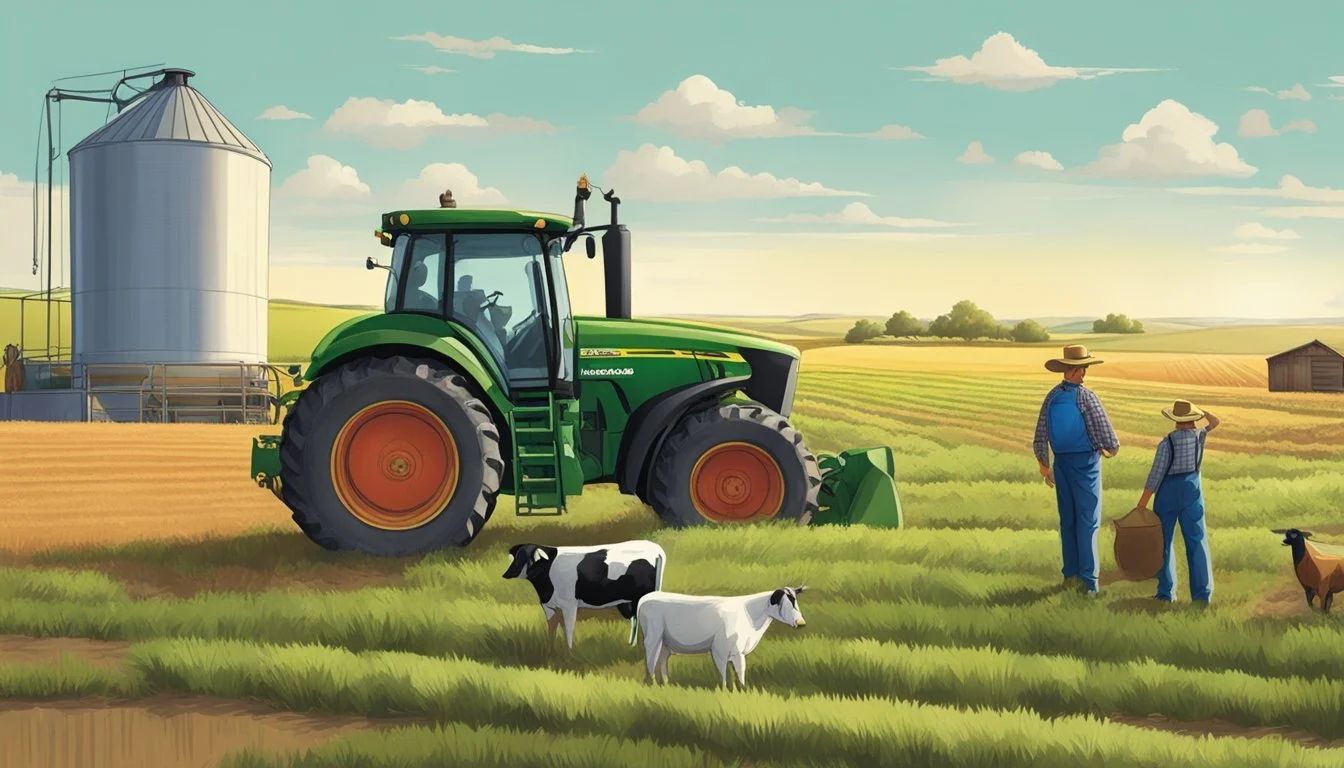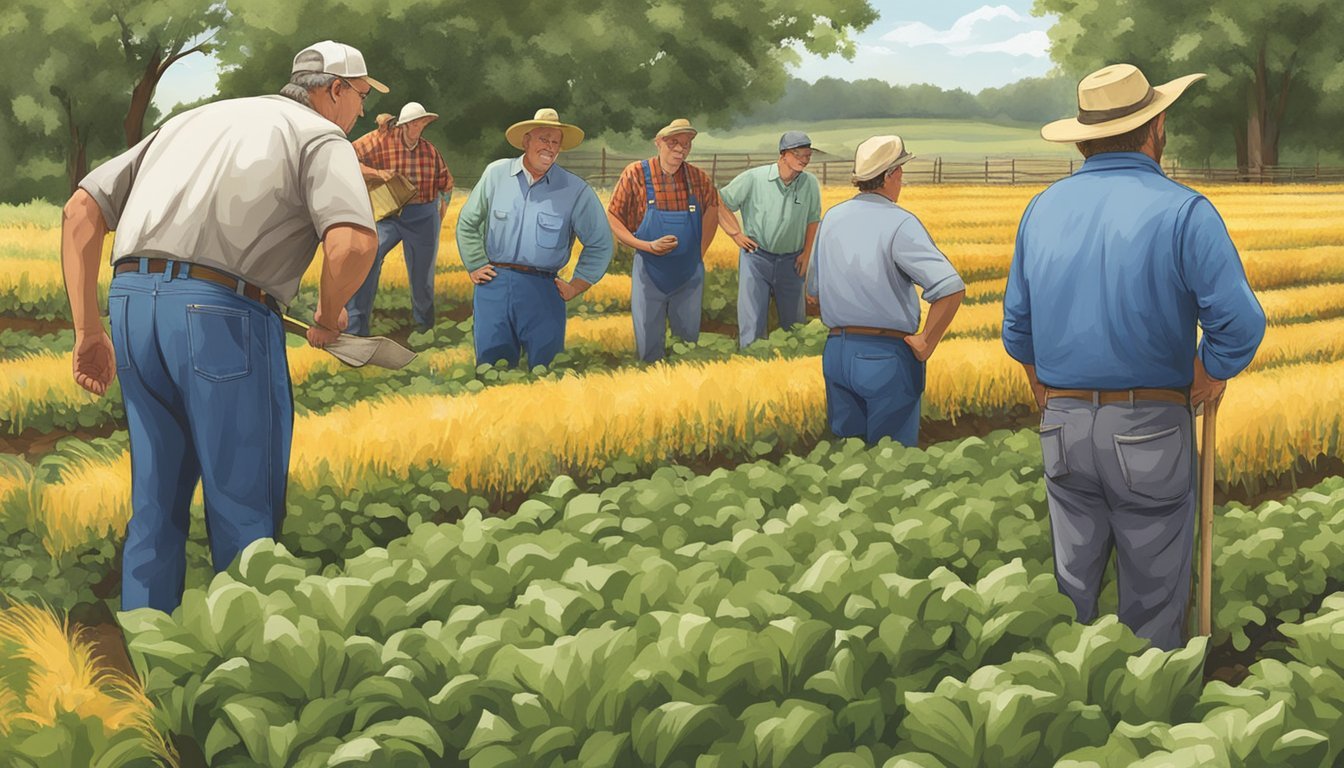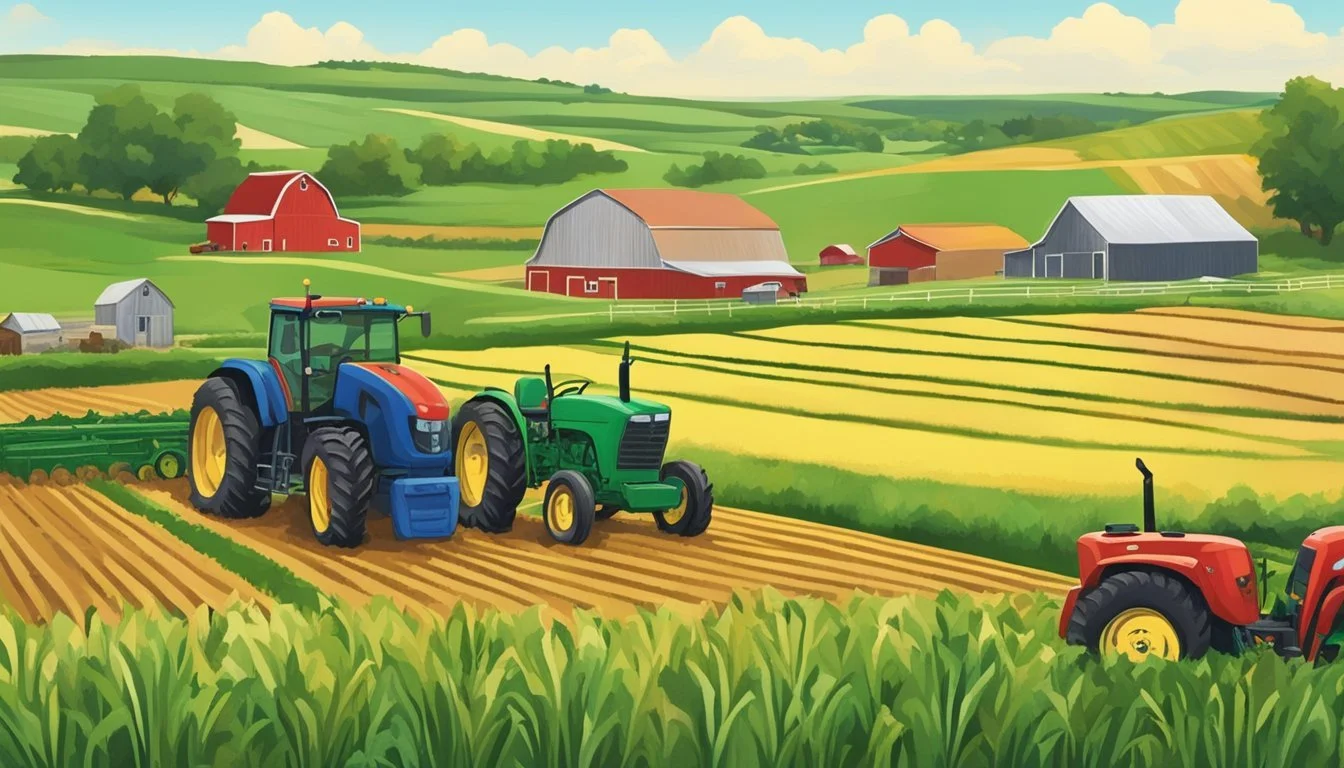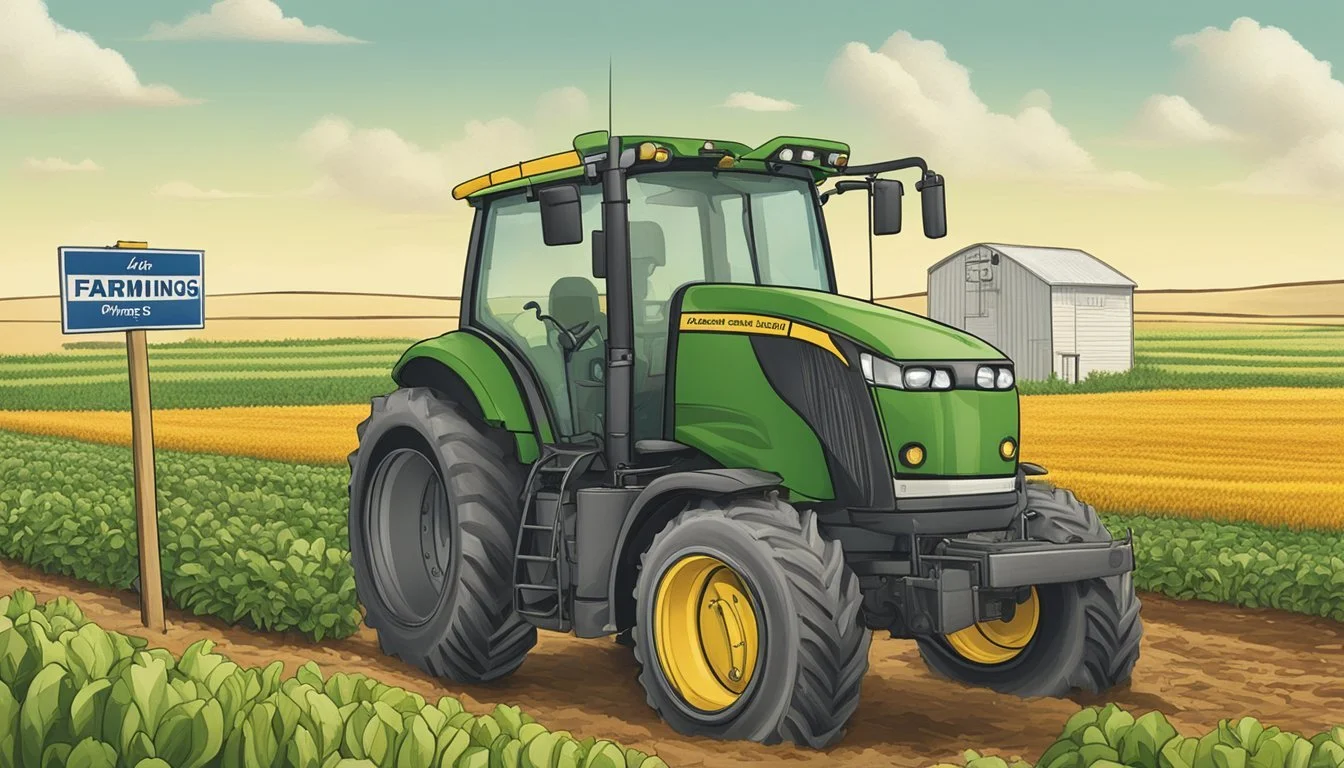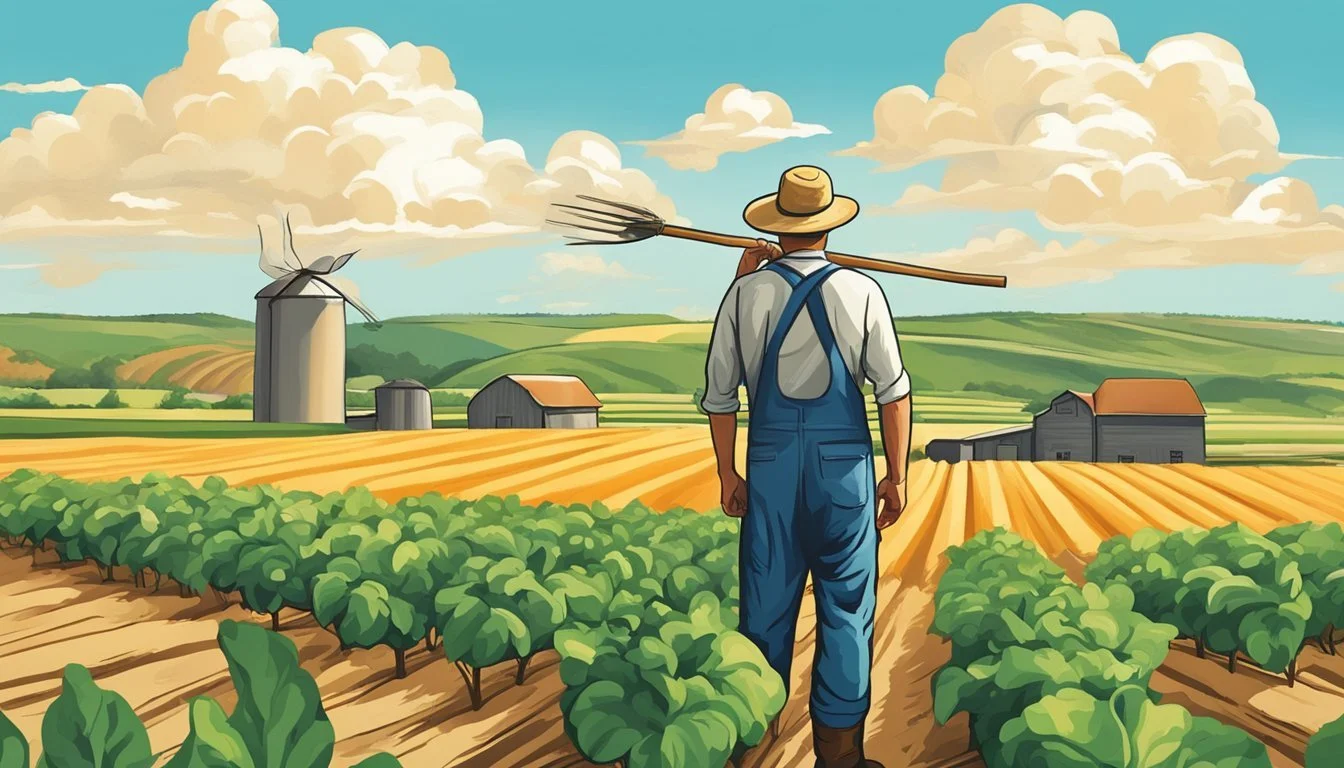Farming Grants Kansas
Opportunities for Agricultural Growth
Agriculture is a significant sector in Kansas, not only for its contribution to the local economy but also for ensuring food security for the state's residents and beyond. To support this vital industry, the Kansas Department of Agriculture, among other organizations, offers a variety of grants and cost-share programs. These initiatives are designed to aid Kansas farmers, ranchers, and agribusinesses by providing financial assistance for various needs. From enhancing conservation efforts to aiding beginning farmers in acquiring land and equipment, the aim is to foster sustainable practices and encourage growth in the agricultural community.
Access to such funding is particularly valuable for beginning and small-scale farmers who face capital limitations as a barrier to entry or expansion. For instance, specific loan programs have been created to assist these farmers in purchasing agricultural land, farm buildings, farm equipment, and breeding livestock. The Kansas Beginning Farmer Loan programs and similar funds help new entrants in the farming space to secure the resources they need to establish and grow their operations, with loan limits adjusting periodically to reflect the changing economic conditions.
Additionally, grants like the Rural Business Development Grants and voluntary cost-share programs address broader needs, such as business development and environmental conservation. These programs encourage farmers to adopt practices that benefit the environment and ultimately enhance the utility and productivity of their lands. Through accessible funding opportunities, Kansas is investing in the resilience and competitiveness of its agricultural sector, paving the way for a stable and prosperous agricultural future.
Understanding Farming Grants in Kansas
Kansas offers several farming grants and programs aimed at supporting the agricultural sector. These initiatives provide financial assistance for various agricultural activities, fostering growth and sustainability within the state's farming community.
Overview of Grant Types
Kansas Department of Agriculture (KDA) issues multiple grant types, each serving a unique aspect of agricultural development. These include:
Cost Share Programs: Aimed at partially funding specific projects for individual farmers, ranchers, and agribusinesses to promote sustainable practices and technological advancements.
Specialty Crop Grants: Designed to support the production and marketing of fruits, vegetables, and nuts, boosting the specialty crop sector.
Role of USDA and USDA Rural Development
The United States Department of Agriculture (USDA), through its Rural Development program, plays a critical role in supporting Kansas farmers. USDA Rural Development offers:
Grants: Financial assistance that does not require repayment, targeting rural areas for development.
Loans and Loan Guarantees: Aid to farmers for purchasing land, equipment, or capital investment, with some options for subsidized interest rates.
USDA involvement ensures that agricultural initiatives align with federal priorities and policies, assuring comprehensive support for the farming community.
Kansas Department of Agriculture (KDA) Initiatives
KDA actively identifies and promotes various agricultural funding sources. Their efforts encapsulate:
Resource Guides: KDA produces guidance documents that list active and past programs, offering a road map for existing and prospective funding opportunities.
Beginning Farmer Programs: Supporting new entrants in agriculture, these initiatives provide pathways to acquire farming land, buildings, and equipment.
KDA's initiatives reflect the state's commitment to not only support existing farmers but also to encourage and enable the next generation of agricultural professionals.
Eligibility and Application Process
When seeking farming grants in Kansas, applicants must navigate a set of eligibility criteria and follow a specific application procedure. Grants and programs are designed to support the agricultural sector, including both farmers and ranchers.
Criteria for Eligibility
Farmers and Ranchers: Individuals must primarily engage in agricultural production.
Location: Must be located within Kansas state boundaries.
Specific Programs: Some programs may have additional criteria based on the nature of the project or conservation practices.
Applying for Grants: A Step-by-Step Guide
Identify the Grant: Select a grant program that aligns with your agricultural operations.
Read the Requirements: Each grant has its own set of rules; ensure you meet them.
Prepare Your Proposal: Detail how the grant will benefit your agricultural practice.
Submit Application: Applications should be complete and submitted by the stated deadline.
Documentation and Lender Approval
Required Documents: Prepare financial statements, a business plan, and project-specific documents.
Lender Approval: For some programs, approval or endorsement from a financial lender may be necessary.
Adherence to these guidelines will improve the likelihood of receiving financial support through Kansas farming grants. Each step is crucial in ensuring that the right support is offered to eligible entities in the agricultural sector.
Financial Resources for Farmers and Ranchers
Kansas offers a variety of financial mechanisms to support its agriculture sector, emphasizing readily available loans, microloan thresholds, and cost-effective financing avenues.
Loans and Financing Options
Kansas Department of Agriculture (KDA) and agencies like Kansas Development Finance Authority (KDFA) provide financial resources aimed at assisting farmers and ranchers. The KDFA, specifically, caters to the needs of beginning farmers through their Beginning Farmer Loan Program. This initiative allows for the purchase of agricultural land, farm buildings, farm equipment, and breeding livestock, with borrower limits subject to lender approval.
Financing Options Available:
Traditional Farmer Loan Programs: offered by the Farm Service Agency (FSA) for general farming needs.
Beginning Farmer Programs: specifically designed to reduce financial entry barriers for new farmers.
Microloans and Program Limits
Microloans present a viable option for farmers in need of smaller amounts of capital, particularly those who are just starting. They are tailored to meet various operational costs such as tools, livestock, seed, and other necessary equipment.
Program Limits:
The maximum amount for beginning farmers is $649,400.
The Kansas Rural Center guides new farmers on not only utilizing these microloans effectively but also on how to manage other aspects of setting up a sustainable agricultural business.
Cost Share Opportunities and Below-Market Interest Rates
Cost share programs and opportunities with below-market interest rates are established to alleviate some of the financial burdens that come with agricultural investments. The KDA proactively identifies grants, cost share programs, and other financing opportunities with favorable terms to support Kansas farmers, ranchers, and agribusinesses.
Attractive Financing Features Include:
Below-Market Interest Rates: which reduce the cost of borrowing.
Cost Share Programs: that assist in shouldering project costs, thus encouraging investment in agricultural ventures.
Types of Farming Grants Available
In Kansas, a diverse array of grants caters to agricultural businesses, allowing for the growth and development of farm operations ranging from equipment purchases to conservation efforts.
Business Opportunity and Enterprise Grants
Value Added Producer Grants (VAPG):
Planning Grants: Up to $75,000 to develop business plans or feasibility studies.
Working Capital Grants: Up to $250,000 to market value-added agricultural products.
Rural Business Development Grants (RBDG):
Offered by USDA Rural Development to encourage economic growth in rural communities.
Can be used to provide technical assistance or training for business development.
Funding for Equipment and Farmland Acquisition
Kansas Beginning Farmer Program:
Aids new farmers in securing financing to purchase agricultural land and equipment.
Ensures that individuals without substantial land ownership can enter and sustain agricultural business ventures.
Conservation and Research Grants
Specialty Crop Block Grant:
Provides funding to promote and enhance the competitiveness of specialty crops.
Conservation Programs:
Grants and cost-share opportunities for practices that conserve natural resources.
Financial and technical assistance for farmers and ranchers to implement conservation strategies.
Grants and programs are essential for sustaining and expanding Kansas' agricultural businesses and land, supporting the state's vital farming community through strategic investments in the future of agriculture.
Support for Beginning Farmers
Kansas offers a robust array of support for beginning farmers, providing financial aid, educational resources, and developmental programs. The state is committed to fostering the next generation of agriculture professionals through strategic partnerships with federal agencies and local organizations.
USDA and FSA Support Programs
The United States Department of Agriculture (USDA) and the Farm Service Agency (FSA) offer critical financial support to beginning farmers. They have crafted a suite of programs aimed at helping these farmers access agricultural land, buildings, equipment, and breeding livestock. One such program is the Direct Farm Ownership Loan, tailored for newcomers to farming without the capital upfront.
Loan Benefits:
Maximum loan amount of $649,400
Fixed interest rates to ensure financial stability
No down payment required in most cases
Kansas Farm Service Agency Resources
The Kansas Farm Service Agency (FSA) is a state-specific branch of the federal FSA and acts as a valuable resource for beginning farmers. The FSA administers both federal and state programs, including grants, loans, and cost-share programs, keen on aiding in the purchase of essential farming needs.
Kansas FSA Highlights:
Endorsement of cost-share opportunities to reduce the financial burden on beginners
Service Centers located throughout Kansas for personalized support
Training and Technical Assistance for Newcomers
Beginning farmers also have access to extensive training and technical assistance programs. These are designed to help new entrants into the farming industry to obtain the necessary skills in business management, record-keeping, and farm operation. The Kansas Rural Center and other organizations provide targeted instruction and resources tailored for the agricultural sector.
Available Resources:
Workshops: Covering an array of subjects from crop production to marketing strategies
Individualized Consulting: For in-depth guidance on specific operational concerns
Support from the Natural Resources Conservation Service (NRCS) for sustainable agriculture practices
Rural Community Advancement
In Kansas, targeted grant programs aim to strengthen rural communities by bolstering business development, and enhancing health and food systems.
Rural Business Enterprise Grants
Rural Business Enterprise Grants (RBEG) support the development of small and emerging businesses in rural areas. Eligibility is determined by location and the size of the enterprise, with an emphasis on projects that lead to job creation and economic expansion in rural communities.
Rural Business Opportunity Grants
The Rural Business Opportunity Grants (RBOG) program provides funds to foster sustainable economic growth in rural communities. These grants help in identifying business opportunities and strategizing for local economic development. Uses for these grants include feasibility studies, business plans, and leadership development to empower rural businesses and entrepreneurs.
Investment in Rural Health and Food Systems
Grants supporting rural health and food systems focus on improving access to healthcare and nutritious food—a vital aspect of rural community advancement. Strengthening local food systems not only provides health benefits but also catalyzes economic growth through investment in local enterprises. These initiatives may include modernizing health care facilities or launching community-supported agriculture (CSA) programs to facilitate fresh, healthy food delivery to residents.
Agricultural Business Development
The agricultural sector in Kansas is poised to benefit from various development programs that offer grants for business improvement, provide leadership and management training, and build the economic impact of agribusinesses. These initiatives help strengthen the foundation for thriving agricultural businesses in the state.
Agricultural Business Grants
Grants like the Rural Business Development Grants offer financial assistance for rural businesses in Kansas to help them expand and improve. Eligibility criteria apply, such as being within a rural area, and applications must meet the deadline of February 28, 2024. These grants are particularly beneficial for agricultural enterprises looking to enhance their operations, innovate, or become more competitive.
Leadership and Management Training
Agricultural businesses in Kansas can take advantage of educational opportunities such as the partnership between Haskell Indian Nations University and the Native American Agriculture Fund. This collaboration has introduced a new agriculture business degree program that focuses on important areas like lending operations and risk management, which are crucial for the leadership and management growth within the sector.
Agribusinesses and Economic Impact
The Kansas Department of Agriculture actively promotes programs that support the state's farmers, ranchers, and agribusinesses. The positive economic impact of these programs is significant, as they provide resources and opportunities for growth and stability. Moreover, initiatives like the Emergency HEAL program aim to revitalize rural downtown structures for commercial agricultural use, thus bolstering the economic health of rural communities.
Grant Search and Resources
Navigating the landscape of farming grants in Kansas requires a strategic approach to identify opportunities that align with agricultural needs. Efficient search methods, resource utilization, and networking can unlock potential grants to support Kansas farmers.
Finding Appropriate Grants
Farmers should begin their search by visiting the Kansas Department of Agriculture (KDA) which regularly updates its list of active and past grant programs that benefit farmers, ranchers, and agribusinesses in the state. For convenience, following a structured search process simplifies identifying which grants suit a farmer's specific requirements:
Identify the Need: Determine what financial support is needed for, such as equipment, sustainability practices, or business expansion.
Eligibility: Check the eligibility requirements, which may include farm size, type of agriculture, or location.
Application Deadlines: Note application periods and deadlines to ensure timely submissions.
Using Media and Staff Resources
Staff resources are pivotal in guiding applicants through the grant application process. The KDA staff provides assistance and can clarify doubts regarding various grant programs. Accessing media resources, such as the KDA's Agriculture Resource Guide, presents a wealth of information on available grants and subsidized loans for new or growing agricultural producers. Utilizing these resources ensures that applicants are well-informed:
Contact KDA: Engage with staff to understand program intricacies.
Resource Guides: Download and review official guides for comprehensive program details.
Networking Events and Workshops
Attending networking events and workshops hosted by the Kansas Rural Center and government agencies can provide practical insights and direct access to expertise. They also provide a platform for interaction with other agricultural producers, which can lead to partnerships and shared learning experiences:
Workshops: Participate in events tailored to beginning farmers and ranchers.
Networking: Connect with peers and industry experts to share knowledge and experiences.
By employing these strategies, farmers in Kansas can effectively locate and apply for grants that will support and enhance their agricultural operations.
Practical Considerations
When seeking farming grants in Kansas, farmers need to address essential practical considerations to maximize resources while adhering to program criteria. This includes a considered approach to applying for and using grants, understanding the constraints of agricultural programs, and how to effectively collaborate with private lenders.
Planning and Utilizing Grants Effectively
Farmers should create detailed plans that outline how the grant funds will be used, ensuring alignment with the grant's objectives. The Kansas Department of Agriculture provides grants and cost share opportunities to assist farmers. Effective planning should consider:
Identification of precise grant objectives
Timelines for project milestones
Cost breakdowns for budget adherence
Understanding Program Limitations
Every program has its boundaries and understanding them is critical. For example, the Beginning Farmer and Rancher Program focuses on business skills and accessing land and capital, but has borrowing limits that farmers should be mindful of. Farmers should review:
Eligibility criteria for each grant
Maximum funding limits
Applicable use of funds and program term duration
Engagement with Private Lenders
Successful engagement with private lenders often requires farmers to demonstrate viable business plans and an understanding of their financial standing. The Beginning Farmer Loan Program allows beginning farmers to borrow up to a certain amount, contingent on lender approval. Engagement should include:
Clear financial records and projections
A solid plan for grant and loan utilization
Regular communication with lenders regarding financial status and plans
Additional Support and Opportunities
Kansas offers a variety of support and opportunities for current and aspiring farmers to enhance their agricultural practices and invest in the future of farming. From youth engagement to technical know-how, the state endorses programs designed to foster agricultural education and provide practical assistance.
Youth Programs like FFA
In Kansas, the Future Farmers of America (FFA) plays a crucial role in nurturing the next generation of agricultural professionals. It provides students with hands-on experiences in the classroom, helping them to develop valuable skills in agricultural science. State-sponsored grants often focus on strengthening such programming, underscoring Kansas' commitment to fostering youth involvement in agriculture.
Technical Assistance from NRCS
The Natural Resources Conservation Service (NRCS) offers technical assistance to Kansas farmers. This federal agency partners with agriculturalists to help them implement conservation practices that improve their farm's environmental footprint and sustainability. Services from the NRCS include conservation planning and access to financial assistance programs like the Environmental Quality Incentives Program (EQIP), which can be critical in helping farmers make strides towards more efficient farming operations.
State-Specific Grant Programs
Kansas actively promotes a wide array of state-specific grant programs aimed at supporting local farmers, ranchers, and agribusinesses. The Kansas Department of Agriculture identifies grants and cost share opportunities that benefit Kansans within the agricultural sector. These state-funded initiatives are significant in bolstering food supply chain infrastructure and enhancing environmental quality through targeted financial backing.
Final Thoughts
In Kansas, farming grants provide crucial support for agricultural ventures, aiding farmers and ranchers in enhancing their operations. Valuable assets such as farm buildings, equipment, and breeding livestock are often the cornerstone of agricultural productivity. Grants may contribute significantly to acquiring and maintaining these assets.
Farming grants in Kansas are tailored to reinforce agricultural infrastructure. Whether it's updating farm buildings to meet modern standards of efficiency or investing in farm equipment that can increase production, these financial supports are integral in promoting a robust agricultural sector.
Investments in breeding livestock represent a strategic move toward long-term sustainability and genetic diversity within Kansas farms. By supporting this area, grants contribute to healthy livestock populations that are vital for the state’s agricultural output.
Farmers interested in applying for these grants can explore their options through various entities, including the Kansas Department of Agriculture and Kansas Farm Bureau Foundation for Agriculture. They offer programs that are structured to address the specific needs of Kansas's ranching and farming communities.
Kansas Department of Agriculture:
Aids in locating both active and past grant opportunities.
Focuses on improving the local or regional food supply chain.
Kansas Farm Bureau Foundation for Agriculture:
Emphasizes education, community improvement, farm safety, and environmental stewardship.
Provides programs that award funds to local initiatives.
It’s essential for farmers in Kansas to remain informed about the various grants available, as these can be a pivotal factor in the growth and prosperity of their agricultural endeavors.
About the Author
Vickie Hoover is a recognized agricultural expert known for her in-depth knowledge of Kansas farming practices and grants. With a focus on sustainable and organic farming methods, she has established herself as a key resource for farmers across the state, particularly those transitioning to or maintaining organic operations.
Her expertise stems from years of firsthand experience within the agricultural sector and her educational background in agronomy. Vickie has been instrumental in guiding Kansas farmers through the complexities of various grant programs designed to support and enhance the state's agricultural industry.
Professional Experience:
Agricultural Consultant: Provides strategic advice to Kansas farmers, specializing in organic farming techniques.
Grant Coordinator: Assists farmers in navigating and securing state and federal grant opportunities.
Vickie's contributions have not only benefited individual farmers but also served to strengthen the Kansas farming community as a whole. Her commitment to agricultural education and her adeptness in financial planning for agribusinesses make her an indispensable ally to both new and established farmers.
Key Focus Areas:
Sustainable Agriculture: Promoting environmentally friendly practices among Kansas farmers.
Grant Acquisition: Identifying and obtaining financial assistance for agricultural endeavors.
Regardless of the reader's level of experience in farming, Vickie Hoover's insights into the world of Kansas agriculture grants are invaluable, offering a clear and confident perspective enriched by her extensive knowledge and neutral professionalism.

